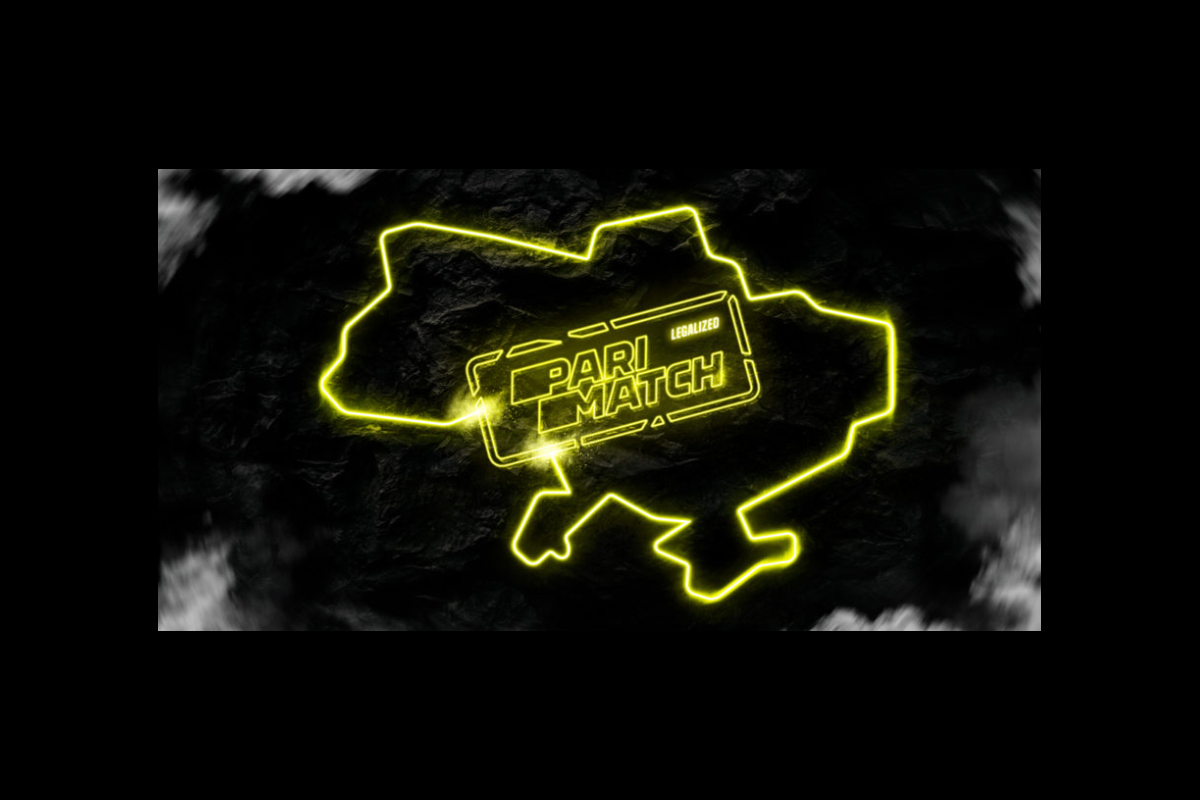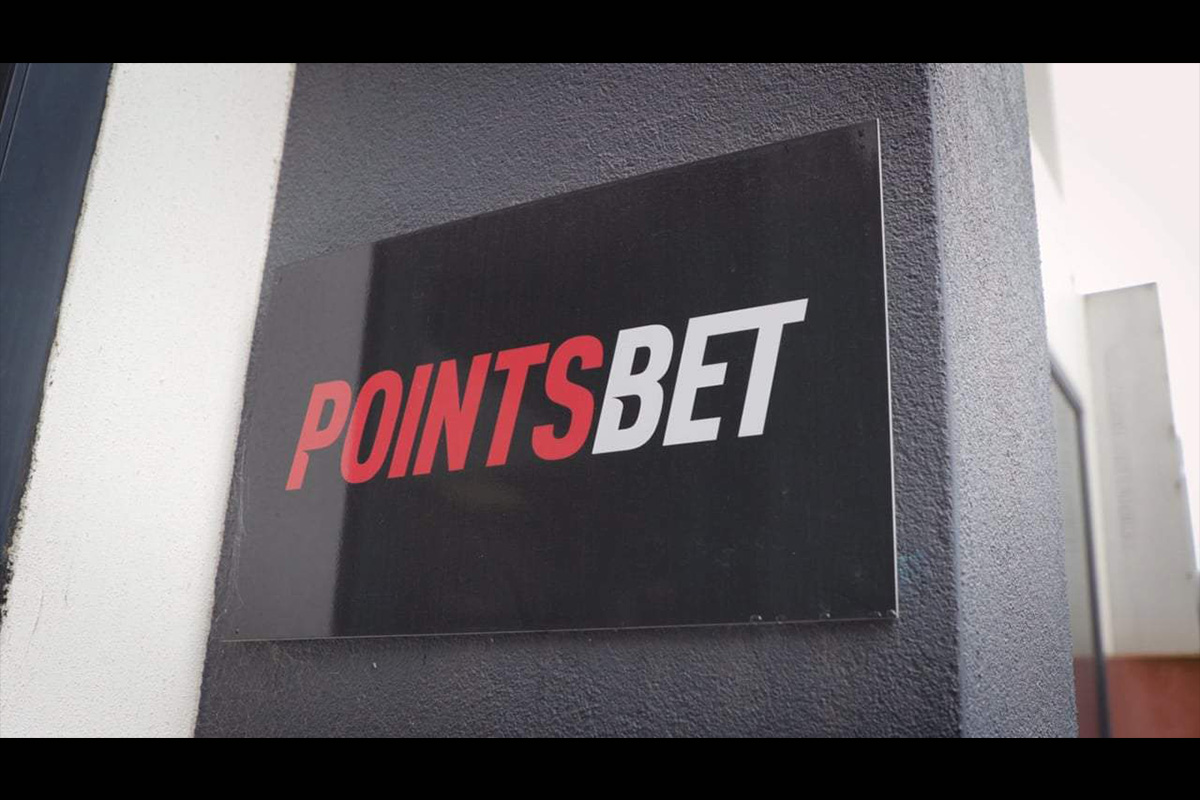Compliance Updates
Ukrainians lend their support to Parimatch as 25,000-strong petition delivered to President Zelenskyy

The petition is asking the President to order a thorough investigation into the arbitrary sanctions imposed on the company
An official petition requesting President Volodymyr Zelenskyy to review the decision to impose sanctions against Parimatch LLC has garnered over the required 25,000 signatures 14 days ahead of the deadline, as the Ukrainian public rallies behind the Company in its fight to uphold the rule of law in Ukraine and unblock its popular services in the country.
Under Ukrainian law an official petition that gathers 25,000 signatures is referred directly to the President for consideration. President Zelenskyy now has 10 days to act in the case which has become a touchstone issue for tens of thousands of Ukrainians who want to see their country become a successful democracy where the rule of law is firmly established and respected.
Parimatch, a popular international sports betting and online gambling company that provides its services to satisfied customers across three continents, has strong roots in Ukraine where the business originated. It was sanctioned by Ukraine earlier this year and banned from operating in the country for 50 years, which has impacted hundreds of thousands of citizens who can no longer access or retrieve their funds. The ban was the result of a flawed and unfair investigation that falsely claimed the Company was doing business in Russia.
Parimatch has provided expert independent legal opinion that confirms the Company ended its third-party licence agreements with Russian entities in March 2022, immediately after Russia’s illegal invasion of Ukraine. This entailed terminating software and trademark licensing agreements it previously had with a Russian entity. Full information about the sanctions against Parimatch can be found on the website https://justice4business .com/en/ that provides extensive documentation about the unfair sanctions and the Company’s legal position.
Maxym Liashko, Managing Partner of Energame, Parimatch’s management company, said:
“We are Ukrainian patriots. Our fellow countrymen and countrywomen unequivocally agree with that. We have supported our country against Russia’s full-scale invasion from the first day, and immediately moved to terminate any remaining legacy business in the aggressor country. We are confident that Ukraine is on an irreversible road to becoming a democratic European nation where people can live and do business freely, while enjoying the full protection of the law. We trust that our President, a champion of the rule of law and liberal democratic values, will do the right thing and order a review of the unjust sanctions that were imposed on us in a flawed and unfair process.
“We all agree that it is the right and the duty of Ukrainian authorities to sanction entities or individuals that seek to undermine the country. Sanctions are a powerful tool in the fight against the invaders and their supporters. However, mistakes are sometimes made, as happened in the case of Parimatch. A robust review and appeal system is therefore an essential part of any sanctions regime.”
The petition also highlights Parimatch’s support for the Ukrainian army and wider war effort that so far has totalled 547 mln hryvnia ($14 mln) and is still ongoing. As an international company proud of its strong Ukrainian roots, Parimatch will remain an unwavering supporter of Ukrainian sovereignty in the face of Russia’s illegal war of aggression.
Compliance Updates
Xpoint gains Massachusetts vendor license as North American expansion accelerates

Xpoint, a leading geolocation and compliance technology company, has officially been granted a vendor license to enter the regulated sports betting market in Massachusetts.
The move marks the latest strategic milestone in the company’s rapid North American expansion, reinforcing its position as a primary provider of essential gaming infrastructure.
Xpoint’s market-leading geolocation solution is now available to operators in the Bay State, providing the high-precision tools required to ensure all player activity is fully compliant with the stringent legal requirements set out by the Massachusetts Gaming Commission.
With the addition of Massachusetts, Xpoint is now authorized to support regulated online sports wagering in 28 states and territories, as well as Ontario in Canada. The latest license follows a period of intense global momentum for the company, which recently saw successful market entries in Missouri, Brazil, and the UAE.
Xpoint’s advanced, adaptable platform is built uniquely for the gaming industry and uses the latest geofencing technology to offer precision location accuracy. By utilizing sophisticated data points, the system effectively prevents fraudulent players from making wagers outside of legal jurisdictions and highlights suspicious activity in real-time.
The platform has been supported by a recent investment round, dedicated to accelerating growth and enabling further differentiation from competitors through continuous product enhancement.
Manu Gambhir, CEO of Xpoint, said: “Securing our license in Massachusetts is a vital step as we continue to make strides in the geolocation space. Massachusetts has a passionate sports culture and a sophisticated regulatory framework, and we are excited to provide the precision technology necessary to maintain the integrity of the state’s sports betting ecosystem.
“Our growth into the Bay State demonstrates our team’s ability to navigate complex regulatory landscapes quickly and efficiently. This expansion underscores the global demand for more innovative and adaptable compliance solutions, and we remain committed to being the most reliable partner for regulated operators worldwide.”
The post Xpoint gains Massachusetts vendor license as North American expansion accelerates appeared first on Americas iGaming & Sports Betting News.
ANJ
What’s up and what’s next on the French gambling market ?

When the 2024 annual report on the French gambling market was published, Isabelle Flaque-Pierrotin, Chair of the French National Gaming Authority (ANJ), stated: “The French market is growing at a pace comparable to that of the major European markets. While operators were particularly active in 2024 due to major sporting events, the first few months of 2025 confirm this growth momentum”.
In fact, in S1 2025, Gross Gaming Revenue (GGR) for the French market stood at €5.7 billion, up 3.5% compared to S1 2024, with the online market growing by 6% compared to S1 2024 (€1.4 billion GGR in S1 2025), driven by sports betting.
The 2025 report, which is yet to be published, will show the impact of the French tax increases that came into force on 1 July 2025, including the 15% tax on operators’ advertising expenditure. It is already apparent that FDJ United’s GGR, which was up 19% in S1 2025 compared to S1 2024, is now only up 1.6% (€4.4 billion) for the whole of 2025, and that its revenue is down 1.7% to €1.9 billion.
The Social Security Financing Act for 2026, enacted in December 2025, does not include any new provisions relating to gambling taxation in France, which the ANJ notes is “heavier than the European average, highly fragmented and difficult to understand”. The regulator adds that, from this point of view, a rationalisation of gambling taxation could be beneficial.
Since Betclic (Banijay Gaming) acquired a majority stake in Tipico at the end of 2025, following the takeover of Kindred by FDJ United in 2024, France, Europe’s fourth-largest gambling market, now has two of the industry’s five European champions. The ANJ considers that the structure of the French market is a matter for the competition authority and is not included in its legislative objective of ensuring the balanced operation of the various types of gambling.
The 2026 Finance Act was enacted just a few days ago in France and has perpetuated gaming clubs in Paris, thus responding to a long-standing demand from land-based casinos. However, unlike last year’s budget debates, this year’s debates did not address the issue of online casinos. There is nothing official on this subject, apart from the fact that it is on everyone’s lips.
According to Pauline Hot, Director General of the ANJ since July 2025: “If one day [online casinos] were to be authorised, it would have to be within a very strict regulatory framework, probably stricter than for other games, because the design of these games is particularly addictive”. For the record, in 2024, the ANJ launched a study on the influence of design of the offers proposed by operators on player behaviour and their gambling consumption.
According to Mr Laurent Lassiaz, CEO of the JOA Group and Vice-Chair of the European Casino Association: “France is one of the few countries in Europe where online casino is not regulated and where tools to combat illegal gambling remain too limited versus the size of the phenomenon. […] given the unique nature of the French market (with its large network of land-based casinos and their string local involvement) we are in favour of a controlled and tightly regulated opening”.
For Nicolas Béraud, President of Banijay Gaming and Chair of the French Online Gaming Association (AFJEL): “There is currently unfair competition for regulated operators, as these illegal players are not subject to any constraints. It also represents a loss of revenue for the State: we are talking about €1 to €2 billion in potential revenue”.
Finally, Ms Flaque-Pierrotin, ANJ Chair, estimates that “the illegal market represents between €800 million and €1.5 billion in GGR: it is therefore not a marginal phenomenon. A PwC study, which we commissioned and which has been updated by the AFJEL, shows that it continues to grow, mainly driven by illegal online casinos”.
The fight against illegal offer brings together the regulator and licensed operators because it is the counterpart to the weight of regulation on legal offer. Since 2023, the ANJ can directly issue administrative blocking orders to infringing sites and mirror sites without having to wait for a court decision. The French regulator is currently exploring the possibility of directly blocking financial flows and wishes to amend the law to enable real-time cooperation with European gambling regulators. In October 2025, managers of the online casino Crésus – which are charged of having went on providing illegal offer in France after a supposed shut down of Crésus activities in September 2024 – were placed in pre-trial detention by a French jurisdiction specialised in organised crime as the result of law enforcement cooperation with Cyprus.
When recently questioned about Anjouan issuing a B2B licence to Relax Gaming, a subsidiary of FDJ United, the ANJ also stated that it regretted “the absence of any legal basis for such a B2B licensing system in French law, and consequently of an adequate regulatory framework, preventing it from controlling these software supply activities”.
The ANJ says it remains vigilant about prediction markets after considering in November 2024 that Polymarket was likely to offer unauthorised gambling services. Germany, Belgium, Romania, Switzerland, the Netherlands, Poland, Greece, Cyprus, Ukraine and Portugal have also blocked access to Polymarket. Nevertheless, the French regulator also states that it is “also looking at what is being done elsewhere, with a view to future innovation”.
In terms of innovation, the start of this year marks the launch of an ANJ-supervised experiment with play-to-earn games (JONUM, i.e. digital games with monetizable prizes), which have been authorised since a 2024 law but for which the secondary legislation was not issued until last February. It should be noted that a trial of the football-themed website Sorare.com – considered in France to be a JONUM -, charged with providing unlicensed gambling facilities to consumers in Britain, has been set for 15 June 2026 at Birmingham Magistrates’ Court.
The key objective of the ANJ’s 2024-2026 strategic plan, which could be evaluated later this year, is to reduce the share of excessive players in operator revenues. Excessive gambling affects 360,000 people in France, which is more than the population of the city of Nice. Requests for voluntary gambling bans – a service revamped in 2025 to simplify, secure and speed up registration – rose from 40,000 to 85,000 between 2021 and 2025. People aged 18-34 account for 56% of those registered.
The ANJ considers that operators’ promotional strategies are one of the main tools at its disposal for striking a balance between the legitimate use of advertising by operators to promote legal gambling and the prevention of excessive gambling. ANJ’s review of operators’ strategies for 2026 showed a 25% increase in promotional budgets – marketing investments and financial rewards – compared to expenditure in 2025, i.e. €785 million, in anticipation of a year marked by the Winter Olympics and the Football World Cup.
To limit advertising pressure, the ANJ proposes the introduction of a whistle-to-whistle ban on television (prohibiting sports betting advertising 5 minutes before the match, during the match and 5 minutes after), stricter sponsorship regulations and the introduction of loss limits for 18-25 year olds.
These proposals are also linked to the regulator’s desire to distance sport from sports betting and to change the culture of gambling in order to prevent its trivialisation in French society, particularly among minors. According to the French regulator, gambling cannot be trivialised because it is not an ordinary consumer product nor just another leisure activity.
A survey conducted at the end of summer 2025 among 5,000 young people aged 15 to 17 shows that more than 4 in 10 young people are gamblers (42.6%) – an increase of 7.8 points compared to the 2021 study -, 54,3% of whom play lottery games, especially scratch games, and 11,4% play sports betting.
The ANJ therefore recommends strengthening controls on the prohibition of sales to minors in physical points of sale and testing tools inspired by foreign models: player cards, QR codes, digital identification. In order to delay minors’ exposure to gambling as long as possible, the ANJ is also campaigning for the abolition of temporary online player accounts, as these allow betting even if proof of age has not yet been verified, while associating families in the prevention process.
Finally, 2026 will see Ms Flaque-Pierrotin’s leave ANJ’s chairpersonship and the nomination of her successor, whose vision will preside over French gambling regulation for the next six years.
Author: Claire Pinson-Bessonnet, Founding Partner at CPB Avocats.
The post What’s up and what’s next on the French gambling market ? appeared first on Eastern European Gaming | Global iGaming & Tech Intelligence Hub.
Canada
PointsBet Canada to Contest Proposed 5-Day Suspension by AGCO

PointsBet Canada confirmed it will request a hearing before the independent Licence Appeal Tribunal to contest the Notice of Proposed Order issued by the Alcohol and Gaming Commission of Ontario (AGCO) on February 12, 2026, proposing a five-day suspension of its operator registration.
PointsBet claims that the proposed sanction overemphasized an isolated incident that was a result of human error, not a systemic issue. The company also said that it did not intentionally withhold information from gaming regulators, and it immediately sent the necessary information once it was discovered.
The operator, which launched in Ontario in April 2022, also said that it cooperated fully with the AGCO’s investigation.
“We have a strong compliance record in Ontario and remain fully committed to the highest standards of integrity and player protection. We look forward to presenting our case at the Tribunal,” said Scott Vanderwel, PointsBet Canada Chief Executive Officer.
The post PointsBet Canada to Contest Proposed 5-Day Suspension by AGCO appeared first on Americas iGaming & Sports Betting News.
-

 Central Europe7 days ago
Central Europe7 days agoPowering the Next Generation of Online Casinos: Inside DSTGAMING’s Scalable iGaming Ecosystem
-

 Adjusted EBITDA6 days ago
Adjusted EBITDA6 days agoBragg Gaming Announces Select Preliminary Unaudited Fourth Quarter and Full Year 2025 Financial Results, and Issues Full Year 2026 Guidance
-

 Bagley-Keene Act5 days ago
Bagley-Keene Act5 days agoCalifornia Gambling Control Commission Issues Critical Guidance on Stakeholder Communications and Ex Parte Rules
-

 Alberta iGaming Corporation7 days ago
Alberta iGaming Corporation7 days agoAlberta iGaming Corporation Partners with Responsible Gambling Council
-

 Habanero7 days ago
Habanero7 days agoRacing Royalty — Habanero’s High-Speed Hold-and-Ride Thrill
-

 BGaming7 days ago
BGaming7 days agoBrace for Impact — BGaming’s Rocket Eruption: Triple Blast
-

 iGaming4 days ago
iGaming4 days agoPRAGMATIC PLAY UNEARTHS PROGRESSIVE MULTIPLIERS IN ROLLING IN TREASURES
-

 Comatel3 days ago
Comatel3 days agoCOMATEL CELEBRARÁ UNA FIESTA PARA CIENTOS DE OPERADORES TRAS FINALIZAR EL PRIMER DÍA DE LA FERIA ESPAÑOLA, INTERAZAR































